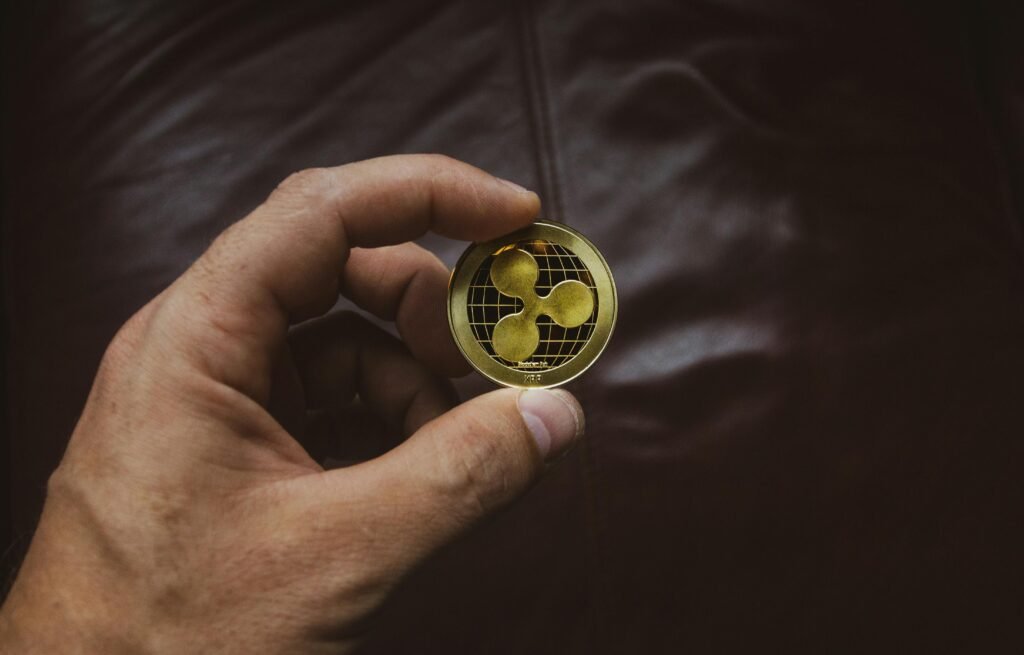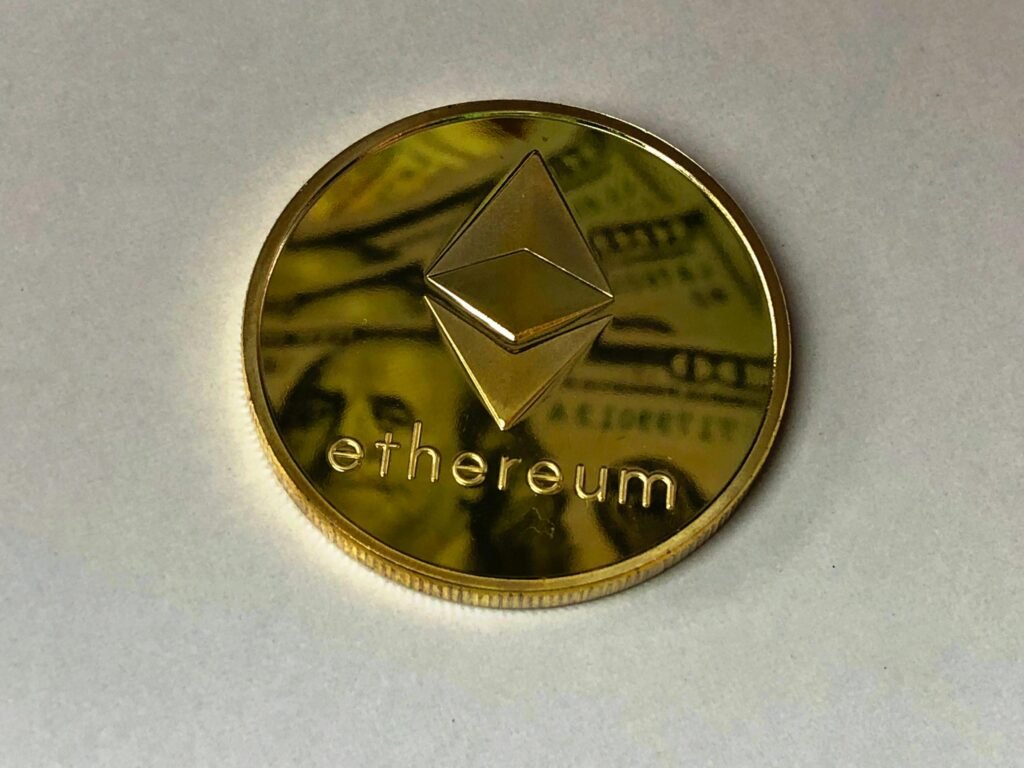Welcome to the world of blockchain in healthcare! In this article, we will explore the potential of this innovative technology to revolutionize the healthcare industry. From secure patient data management to streamlined transactions, blockchain has the power to transform the way we access and store medical information. Join us on this exciting journey as we dive into the countless possibilities that blockchain has to offer in improving the quality and efficiency of healthcare services. Have you ever wondered how technology can revolutionize the healthcare industry? Let’s explore the potential of blockchain technology in healthcare and how it can transform the way we access and manage healthcare data.

This image is property of images.pexels.com.
Check out our Product Reviews
Understanding Blockchain Technology
Blockchain is a decentralized, distributed ledger that securely records transactions across a network of computers. Each transaction is stored in a block, and once verified by network participants, it is added to the chain in a chronological order. This creates a transparent and trustless system where no single entity has control over the data.
Blockchain technology is often associated with cryptocurrencies like Bitcoin, but its applications go far beyond digital currencies. In healthcare, blockchain can be used to securely store and share sensitive patient data, streamline medical records management, improve interoperability between healthcare providers, and ensure the integrity of clinical trials and research data.
How Does Blockchain Ensure Data Security?
One of the key features of blockchain technology is its strong security measures. Each block contains a unique cryptographic hash that links it to the previous block, creating a chain of interconnected data blocks. This secure and tamper-proof system makes it difficult for hackers to manipulate or corrupt the data stored on the blockchain.
By encrypting and decentralizing patient data on the blockchain, healthcare providers can protect sensitive information from unauthorized access and cyber attacks. Patients can also have greater control over who can access their medical records, ensuring their privacy and confidentiality are maintained.
Benefits of Blockchain in Healthcare
Blockchain technology offers numerous benefits for the healthcare industry, ranging from improved data security and privacy to enhanced efficiency and transparency. Let’s explore some of the key advantages of using blockchain in healthcare:
Enhanced Data Security and Privacy
With traditional centralized databases, patient data is vulnerable to cyber attacks and data breaches. By storing medical records on a blockchain, healthcare providers can ensure that patient information is encrypted, decentralized, and accessible only by authorized personnel. This reduces the risk of unauthorized access and protects patient privacy.
Improved Interoperability and Data Sharing
One of the biggest challenges in healthcare is the lack of interoperability between different healthcare systems and providers. Blockchain technology can help facilitate data sharing and interoperability by creating a unified and standardized platform for storing and exchanging medical records. This can improve care coordination, enable seamless data sharing between healthcare providers, and enhance patient outcomes.
Streamlined Medical Records Management
Managing and updating medical records can be a cumbersome and time-consuming process for healthcare providers. Blockchain technology can streamline medical records management by creating a single source of truth for patient data. This can reduce administrative burden, eliminate duplication of records, and ensure the accuracy and integrity of medical information.
Enhanced Data Integrity and Auditability
Ensuring the integrity and auditability of healthcare data is critical for regulatory compliance and quality assurance. Blockchain technology can provide a tamper-proof and transparent system for tracking changes to medical records, ensuring that all modifications are recorded and authenticated by network participants. This can improve data accuracy, reduce errors, and enhance accountability in healthcare delivery.
Check out our Product Reviews
Use Cases of Blockchain in Healthcare
Blockchain technology has the potential to disrupt various aspects of the healthcare industry, from patient care and data management to supply chain logistics and clinical research. Let’s explore some of the use cases of blockchain in healthcare:
Electronic Health Records (EHR) Management
Electronic Health Records (EHR) contain vital information about a patient’s medical history, treatment plans, and test results. Storing EHR on a blockchain can improve data security, enable secure data sharing between healthcare providers, and empower patients to have greater control over their medical records. This can lead to better care coordination, reduced medical errors, and enhanced patient outcomes.
| Use Case |
Description |
| EHR Sharing |
Blockchain can facilitate secure and seamless sharing of EHR between healthcare providers, ensuring that all parties have access to relevant patient information. |
| Patient-Controlled Access |
Patients can manage and control who has access to their EHR, allowing them to share their medical records with healthcare providers on a need-to-know basis. |
| Data Integrity |
Blockchain ensures the integrity and immutability of EHR, reducing the risk of data tampering or manipulation. |
Prescription Drug Traceability
Counterfeit drugs pose a significant threat to public health and patient safety. Blockchain technology can be used to track and trace pharmaceutical products throughout the supply chain, ensuring that medications are authentic, safe, and compliant with regulatory standards. By securely recording the journey of prescription drugs on a blockchain, healthcare providers can verify the authenticity of medications, prevent drug counterfeiting, and enhance supply chain transparency.
| Use Case |
Description |
| Drug Authentication |
Blockchain can provide a secure and transparent system for verifying the authenticity of prescription drugs, protecting patients from counterfeit medications. |
| Supply Chain Transparency |
By tracking the movement of pharmaceutical products on a blockchain, healthcare providers can ensure the integrity and transparency of the supply chain. |
| Regulatory Compliance |
Blockchain technology can help healthcare companies comply with regulatory requirements for drug traceability and authentication, reducing the risk of non-compliance and regulatory penalties. |
Clinical Trials and Research Data Management
Clinical trials and research studies generate vast amounts of data that are critical for advancing medical science and developing new treatments. Blockchain technology can revolutionize the way clinical trial data is managed, stored, and shared, ensuring data privacy, integrity, and security. By securely recording research data on a blockchain, healthcare researchers can improve data transparency, accelerate the research process, and enhance collaboration in the scientific community.
| Use Case |
Description |
| Data Security |
Blockchain offers enhanced security measures for storing and sharing clinical trial data, protecting sensitive research information from unauthorized access. |
| Data Integrity |
By utilizing blockchain technology, researchers can ensure the integrity and immutability of research data, enabling accurate analysis and interpretation of study results. |
| Collaboration and Transparency |
Blockchain can foster collaboration and transparency in the scientific community by providing a secure and decentralized platform for sharing research findings and data insights. |
Healthcare Supply Chain Management
Efficient supply chain management is essential for ensuring the timely delivery of medical products and services to patients. Blockchain technology can optimize healthcare supply chains by providing real-time visibility into inventory levels, ensuring product authenticity, and enhancing logistics tracking. By securely recording the movement of medical supplies on a blockchain, healthcare companies can streamline supply chain operations, reduce costs, and improve patient care.
| Use Case |
Description |
| Inventory Management |
Blockchain enables real-time tracking of inventory levels and supply chain logistics, optimizing inventory management and reducing stockouts. |
| Product Authentication |
By verifying the authenticity of medical products on a blockchain, healthcare providers can prevent counterfeit goods from entering the supply chain, ensuring patient safety and product quality. |
| Transparency and Trust |
Blockchain technology enhances transparency and trust in the healthcare supply chain by providing stakeholders with real-time visibility into product movement, delivery status, and inventory levels. |
Challenges and Limitations of Blockchain in Healthcare
While blockchain technology offers numerous benefits for the healthcare industry, it also comes with its own set of challenges and limitations. Let’s explore some of the key challenges that healthcare providers may face when implementing blockchain solutions:
Scalability and Performance Issues
One of the major challenges of blockchain technology is scalability, as the current blockchain infrastructure may not be able to handle the volume of transactions required in a healthcare setting. The processing speed and capacity of blockchain networks may be limited, leading to potential bottlenecks and delays in data transactions. Healthcare providers will need to address scalability and performance issues to ensure the efficient operation of blockchain systems.
Regulatory Compliance and Legal Framework
The healthcare industry is highly regulated, with strict rules and guidelines governing the storage, sharing, and protection of patient data. Implementing blockchain solutions in healthcare may raise legal and regulatory challenges related to data privacy, security, and compliance. Healthcare providers will need to navigate the complex legal landscape to ensure that blockchain implementations meet regulatory requirements and industry standards.
Data Standardization and Interoperability
Achieving data standardization and interoperability is essential for the successful implementation of blockchain in healthcare. Different healthcare systems and providers may use diverse data formats, coding languages, and protocols, making it challenging to establish a unified platform for storing and exchanging medical records. Healthcare organizations will need to prioritize data standardization efforts to ensure seamless interoperability and data sharing on the blockchain.
Cost and Resource Constraints
Deploying blockchain solutions in healthcare may require substantial investments in infrastructure, technology, and workforce training. The initial costs associated with blockchain implementation, such as development, integration, and maintenance, can be significant for healthcare organizations. Moreover, the shortage of blockchain expertise and skilled professionals in the healthcare industry may pose additional challenges for adopting blockchain technologies. Healthcare providers will need to assess the cost-effectiveness and resource implications of blockchain initiatives to justify their investment and drive adoption.

This image is property of images.pexels.com.
Future Outlook of Blockchain in Healthcare
Despite the challenges and limitations, the future of blockchain in healthcare looks promising, with the potential to revolutionize the industry and improve patient care. As healthcare providers continue to explore innovative uses of blockchain technology, such as EHR management, drug traceability, clinical trials, and supply chain logistics, we can expect to see significant advancements in data security, interoperability, and efficiency.
Blockchain has the power to transform the way healthcare data is managed, shared, and accessed, creating a safer, more transparent, and patient-centric healthcare ecosystem. By harnessing the full potential of blockchain technology, healthcare providers can enhance data security, streamline operations, and deliver better outcomes for patients.
In conclusion, blockchain technology has the potential to reshape the future of healthcare by offering a secure, decentralized, and transparent platform for storing and managing medical data. By embracing blockchain solutions, healthcare providers can address key challenges in data security, interoperability, and supply chain management, leading to improved patient care and healthcare delivery. As you explore the possibilities of blockchain in healthcare, remember to consider the benefits, challenges, and opportunities that this transformative technology can bring to the industry.
Check out our Product Reviews